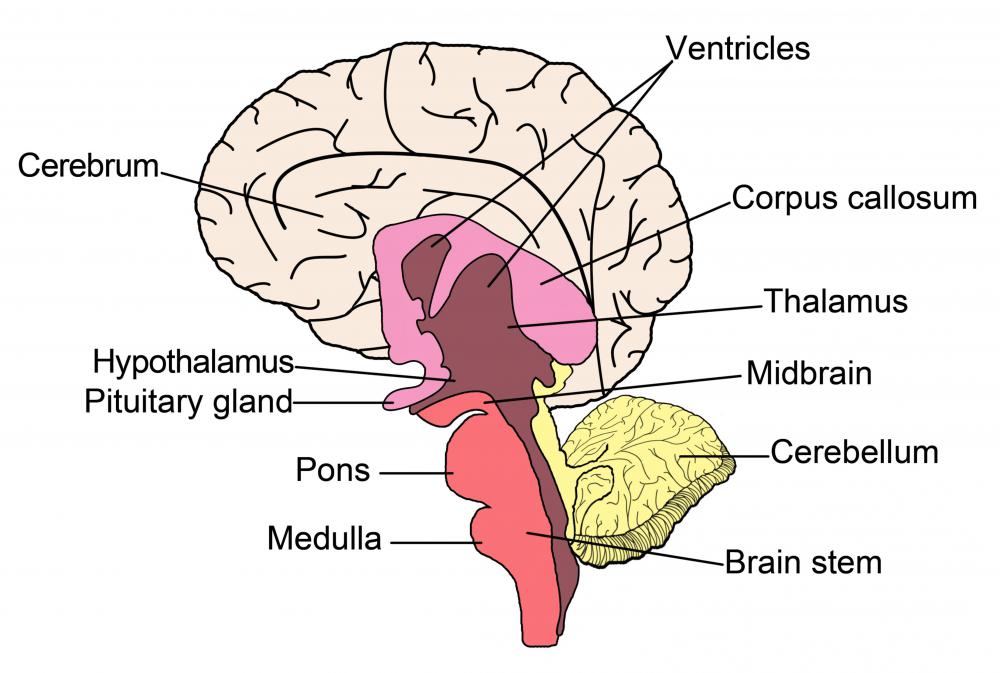At WiseGEEK, we're committed to delivering accurate, trustworthy information. Our expert-authored content is rigorously fact-checked and sourced from credible authorities. Discover how we uphold the highest standards in providing you with reliable knowledge.
What are Antipyretics?
Antipyretics refer to varying types of medication that may be primarily used to reduce fever in people with overly high body temperatures, usually as due to viral or bacterial infection. There are many of these drugs with which people may have great familiarity. Widely available over the counter types include non-steroidal anti-inflammatory drugs (NSAIDs) like ibuprofen, salicylic acid or aspirin and paracetamol/acetaminophen. All of these medications can be used to lower fevers, and there are other medications that might be tried if these do not work.
One of the distinctive parts of the definition of antipyretics is that they are medications that only lower body temperature when fever is present. This is why the over the counter drugs listed above are applicable as use for other things like treatment of inflammation, pain or, in the case of salicylates, daily treatment for stroke prevention. Fever reducers could not be particularly effective for other treatments, if they always lowered body temperature. Using them might mean dropping the temperature of the body below safe levels.

The reason that these medications typically only work on temperature when required has to do with the way the body responds to infection. When infection of any type occurs, the body may begin reducing a substance called interleukin, which sends a message to the hypothalamus to increase temperature. Antipyretics essentially override this message, and the hypothalamus responds by lowering temperature to normal.

In metaphor, it as though interleukin and antipyretic are two roommates who can’t agree about the temperature of the house, since Infection came for a visit. Interleukin is constantly trying to turn up the thermostat. Antipyretic keeps turning it back down. Note this battle can continue for a while, until Infection leaves.
It’s often necessary for people to continue to take antipyretics for a few days or more to keep a fever from coming back. Other medications like antibiotics might be useful in bacterial infections too, as these may help reduce infection and reduce release of interleukin. On the other hand, some viral infections quickly leave and people might only need a single dose of antipyretics to regulate the temperature.

There are many potential forms antipyretics might take, even in over the counter types. They could be available in pill form, in chewable tablets, in quick dissolve strips or in liquid. Many people may take suppository types of medications, and this is particularly helpful when controlling fever of someone who is vomiting.
There are some general things to remember about the common antipyretics. Aspirin should never be used in children unless it is prescribed. Acetaminophen/paracetamol is usually contraindicated in those with liver disease. Ibuprofen or other NSAIDs may need to be avoided by people with NSAID allergy or who take any form of blood thinner. More antipyretics are not better; there can be dangerous consequences when people exceed the recommended dose.

Others are also interested in when they should treat fevers with fever reducers. Typically this is a better question for doctors, especially when treating newborns and young children who may run very high fevers. A balance must be struck between the benefits of the fever fighting infection and the risks and comfort level of the person being treated. Consider having a chat with a doctor or calling the office to ask what guidelines they recommend for people of different ages. This may help determine at what point antipyretics should be considered as beneficial for treating fever.
AS FEATURED ON:
AS FEATURED ON:

















Discuss this Article
Post your comments